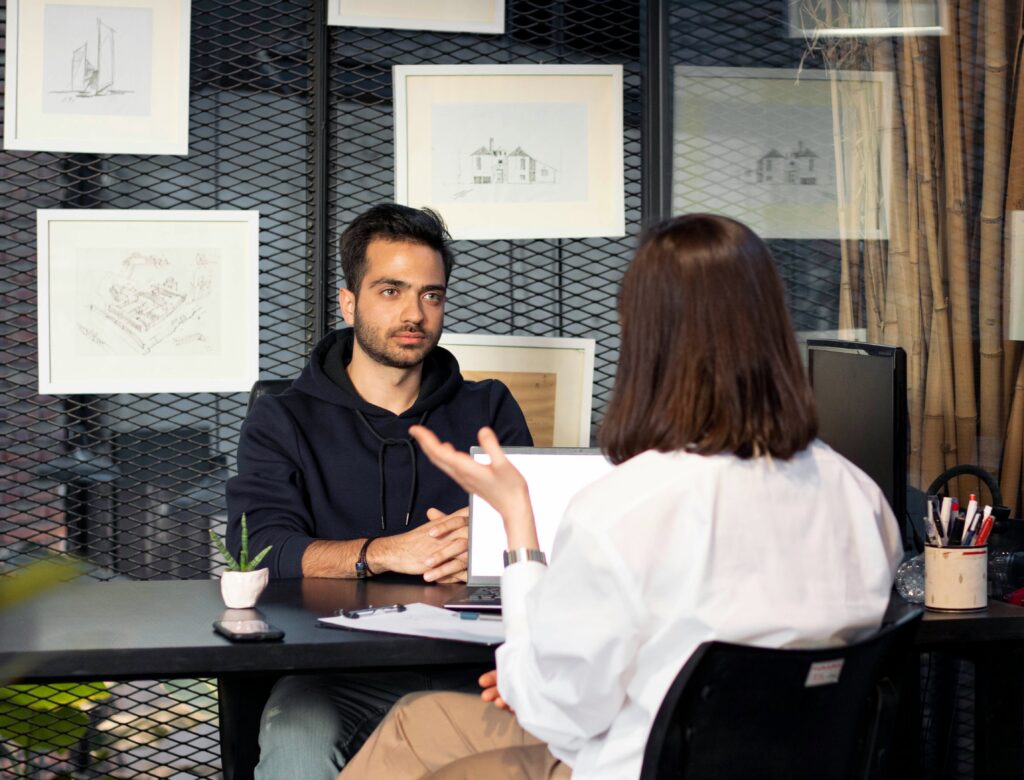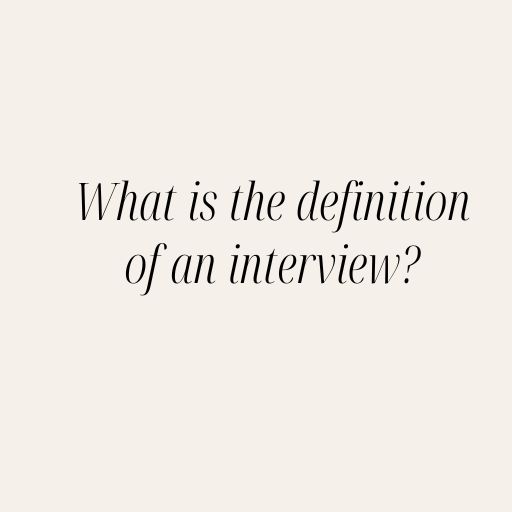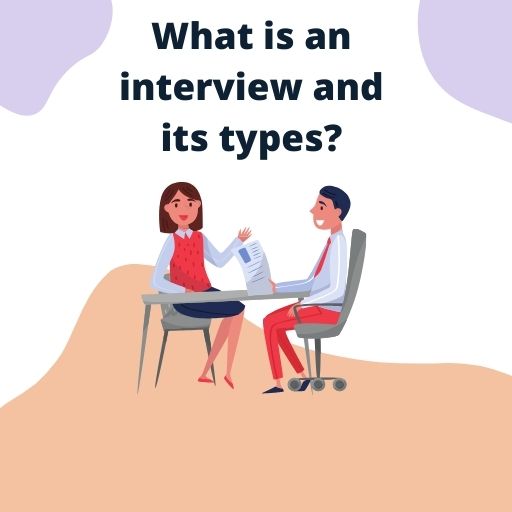An interview is a formal conversation between two or more people, often in a question-and-answer format, where one person (the interviewer) asks questions and another person (the interviewee) provides answers. Interviews are commonly conducted to gather information, assess qualifications, evaluate candidates for a job or position, or to conduct research.
Indeed, of certainly! Here’s some further details about interviews:
1. organizes of Interviews: Interviews can take many different forms. These include informational, job, research, and media interviews. Each kind has a distinct function and could use different formats and methods.
2. Preparation: It’s critical to make sure applicants and interviewers both do some homework prior to the interview. Interviewers should investigate the subject or candidate and prepare a list of suitable inquiries. Interviewees ought to do their homework about the business or organization, rehearse typical interview questions, and have samples of their credentials and experiences ready.
3. Structure: Interviews usually take one of two forms: semi-structured, in which the interviewer has a list of important conversation topics but provides more leeway in question formulation, or structured, in which the interrogator asks established questions.
What are the 4 steps in interview?

- Studying the Job Description: It’s crucial that both the interviewer and the candidate read carefully over the job description prior to the interview. This guarantees the interviewer is familiar with the position’s needs and gives the candidate a sufficient amount of time to prepare for searches regarding the role.
Becoming Ready: Being adequately prepared for the interview enables the interviewer to weed out unsuitable applicants and become acquainted with their backgrounds before.
Phone Screen: Before moving on to a directly interview, completing a phone screen with candidates can help to reduce the pool of possible candidates.
Interview in Person: This stage enables an in-person interview, giving both sides the chance to gauge each other more personally and go deeper into qualifications and fit.
How to define myself?

The procedure of defining oneself entails acknowledging and expressing your special traits, beliefs, abilities, and experiences. Some actions will assist you in expressing yourself:
Start by thinking about your fundamental convictions and the things that are most important to you. Consider your values, your beliefs, and your sources of strength.
Determine Your Strengths: Give yourself some time to assess your advantages and skills. Think about your abilities, aptitudes, and strong points. Both hard talents (technical knowledge) and soft skills (problem-solving, management, communication, etc.) can be added to this.
Evaluate Your Passions and Interests: Consider the things that truly inspire and fascinate you. Determine your interests, passions, and the subjects or pursuits that you find rewarding to devote your time and effort to.
Think Reflect on Your Experiences: Go back on past encounters, both
What is interview structure?

The arrangement and framework of the interview process are referred to as the interview’s structure. An interview with a clear structure makes it easier to make sure that all the necessary data is gathered, that the interviewee and interviewer have a good experience, and that candidates can be evaluated with equality and consistency.
The following are the essential elements of an interview structure:
1. Introduction: The interviewer starts by extending a warm greeting to the candidate, outlining the procedure, and establishing a formal yet friendly atmosphere. This is your chance to build a relationship and make the candidate feel comfortable.
2. Background and Context: The interviewer may give an easily understood overview of the department, team, or organisation as well as the reason for the interview.
3. Information Collection: the present phase includes
How to describe yourself in 10 words?

- This list of ten terms are examples of how you may describe yourself:
Inquisitive
Aspiring
imaginative
Being compassionate
Dependable Flexible
dependable
Strategic, Patient, and Optimistic


